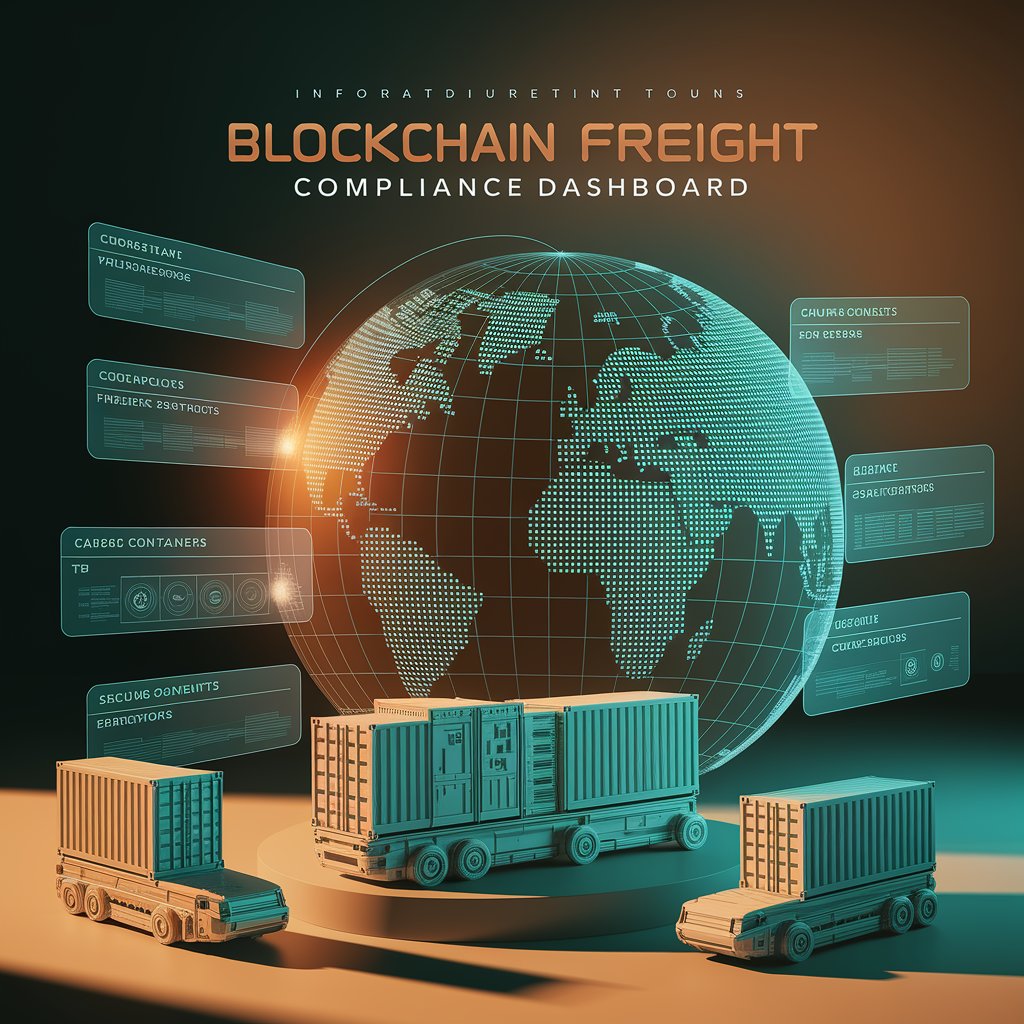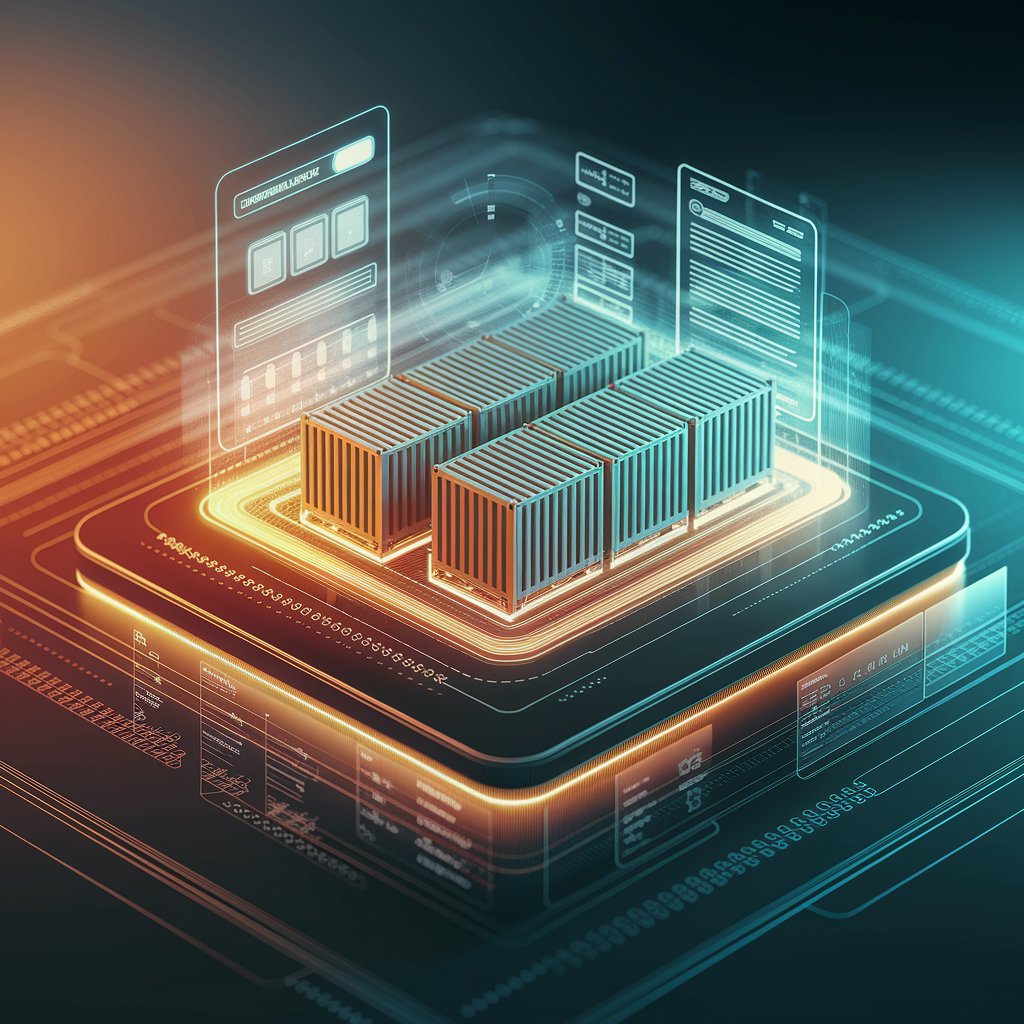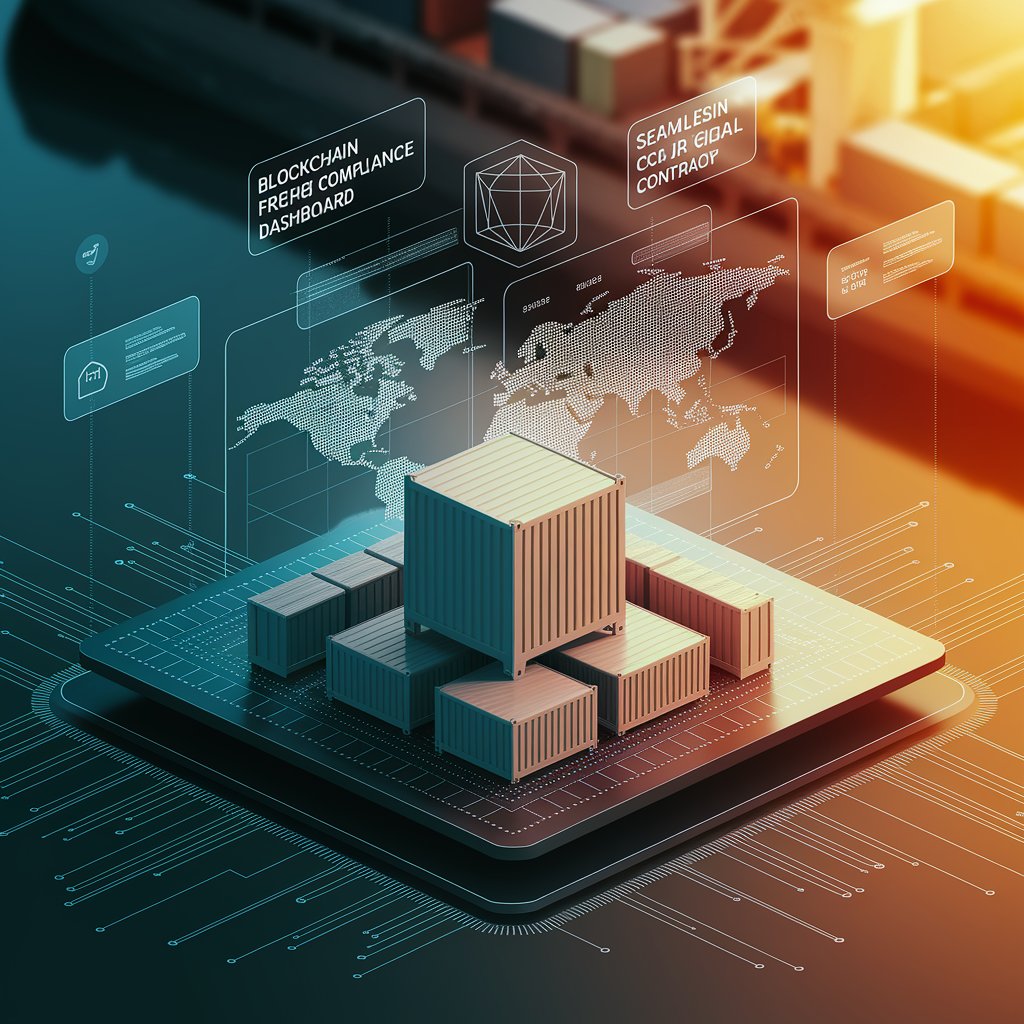Blockchain Freight Compliance: Securing Transparency in Global Logistics

Introduction
This is where blockchain freight compliance comes into play. By creating secure, tamper-proof digital records of every transaction, blockchain ensures transparency, trust, and efficiency across supply chains, helping logistics providers meet global compliance standards.
What Is Blockchain Freight Compliance?
Blockchain freight compliance refers to the use of distributed ledger technology (DLT) to manage and verify freight transactions, documents, and compliance processes. Unlike traditional centralized databases, blockchain provides an immutable record that all stakeholders—shippers, carriers, customs authorities, and regulators—can access in real time.
This approach transforms compliance from a manual burden into a transparent and automated process.

Key Features of Blockchain Freight Compliance
- Immutable Records: All documents (B/L, invoices, customs forms) are permanently stored on the blockchain.
- Smart Contracts: Automate compliance checks and trigger actions (e.g., payment release, customs clearance).
- Global Visibility: Ensure regulators and stakeholders have access to real-time, verified data.
- Fraud Prevention: Tamper-proof records eliminate forged documents.
- Audit Readiness: Instant access to historical, verified compliance logs.
Benefits for Logistics Providers
- Transparency: Build trust with clients and regulators through open, verifiable records.
- Efficiency: Automate compliance tasks and reduce administrative workload.
- Cost Savings: Avoid fines, penalties, and delays from compliance errors.
- Risk Reduction: Prevent fraud and unauthorized data manipulation.
- Global Expansion: Simplify compliance with international trade standards.

Real-World Applications
- Customs Clearance: Automating declaration and approval workflows.
- Freight Forwarding: Blockchain-based bills of lading shared across carriers.
- Maritime Shipping: Tamper-proof cargo manifests for ports and authorities.
- Pharmaceutical Supply Chains: Ensuring compliance with strict safety regulations.
The Future of Blockchain in Freight Compliance
The future of blockchain freight compliance will integrate with AI, IoT, and digital twins to create self-validating supply chains. IoT devices will feed real-time shipment data into blockchain, while AI will detect compliance risks automatically. Governments and international trade bodies are also expected to adopt blockchain as the standard for cross-border verification.

Conclusion
Blockchain freight compliance is redefining trust and transparency in global logistics. By providing immutable records, automating compliance, and eliminating fraud, blockchain ensures that freight moves across borders faster and with fewer risks. For logistics providers, adopting blockchain is not just about keeping up with regulations—it’s about building a resilient, future-ready supply chain.
